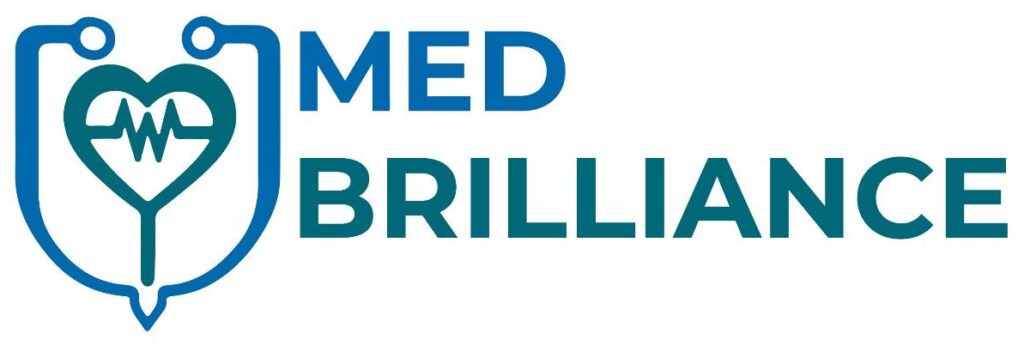Medical billing errors cost the USA healthcare providers billions every year. External billing audit teams help eliminate these errors, guarantee compliance, and boost overall revenue performance. It is very essential to learn about the mode of working of an external audit billing team if you’re a healthcare provider or carry out private practice.
Key Differences Between In-House Billing vs. External Audit Billing
Here are the core differences between managing billing in-house and using an external billing audit team.
Aspect
In-House Billing
External Audit Billing
Control
Full control over processes and decisions
Limited control and relies on third-party management
Expertise
Depends on staff training and experience
Audit team includes certified and specialized experts
Compliance Monitoring
Internal teams may miss updates to CMS or payer regulations
Constantly updated on new laws, ICD/CPT changes, and payer rules
Error Detection
Errors may go unnoticed due to internal bias or oversight
Objective review guarantees accurate medical coding and fewer rejections
Technology
May rely on outdated billing software
Uses advanced audit and analytics tools
Cost
Regular staff salaries, training, and benefits
Service-based model; cost varies with project size
Scalability
Limited by team capacity
Easily scalable based on practice size and volume
Data Security
Handled internally with existing IT infrastructure
Uses HIPAA-compliant secure platforms for data sharing
Training Needs
Regular staff training required
No training required from your end
Audit Frequency
Rare or annual audits
Monthly or quarterly auditing available
Need Experts Help?
Get free consultation from our specialists and find the right solution.
Who Is Part of an External Billing Audit Team?
The External billing audit team of medbrilliance is composed of some experienced members which handle the complete audit process for the healthcare providers.
1. Certified Professional Coder (CPC)
Verifies that CPT, ICD-10, and HCPCS codes are applied correctly and comply with payer rules.
2. Medical Billing Auditor
Conducts detailed claim reviews to spot underpayments, denials, and missed revenue opportunities.
3. Compliance Officer
Ensures adherence to HIPAA, CMS, and OIG billing guidelines across all billing activities.

4. Revenue Cycle Analyst
Analyzes billing trends, identifies cash flow bottlenecks, and suggests optimization strategies.
5. Account Manager
Coordinates communication between the healthcare provider and the audit team for smooth workflow.
6. Claims Resolution Specialist
Handles denied or rejected claims and appeals to recover lost revenue.
7. IT Security Specialist
Manages data privacy, implements encryption protocols, and ensures HIPAA-compliant file transfers.
Benefits of Hiring an External Billing Audit Team
Hiring an External Billing Audit Team provides many benefits compared to the in house billing team and some of them are:
- Improves claim accuracy and reduces denials.
- Identifies revenue leaks and boosts collection rates.
- Guarantees compliance with payer policies and federal laws.
- Reduces administrative workload for internal staff.
- Access to experienced coders and audit professionals.
- Saves time and cost on staff training and software upgrades.
- Offers unbiased, third-party billing assessments.
- Helps practices pass insurance and CMS audits.
- Increases efficiency in revenue cycle management.
- Provides regular performance reports with improvement methods

Services Provided by External Billing Audit Team
There are certain key services provided by the external billing audit team which can deal with the major audit tasks.
Services
How External Billing Audit Team Manages Them?
Full Claims Audit
Review of all submitted claims to identify coding errors, underbilling, and overbilling patterns.
Denial Management Analysis
In-depth evaluation of denial reasons with strategies to reduce future rejections.
Compliance Auditing
Checks whether billing aligns with CMS, HIPAA, and payer-specific regulations.
Code Optimization
Check for correct CPT, ICD-10, and HCPCS usage to prevent claim denials.
Revenue Recovery Services
Locates and resubmits missed or underpaid claims for reimbursement.
Benchmark Reporting
Delivers monthly or quarterly reports comparing billing performance to industry standards.
Training Recommendations
Provides actionable suggestions for internal billing team improvements.
Pre-bill Auditing
Reviews claims before submission to catch costly errors early.
EHR Integration Review
Assesses compatibility of billing practices with your current EHR system.
Outsourced Billing Evaluation
Assess the performance of your third-party billing vendor if already used.
How to Choose the Right External Billing Audit Company?
There are certain factors which influence the selection of the right external billing audit company and some of the important ones are mentioned below:
1. USA Healthcare Expertise
Choose a firm familiar with USA insurance systems especially medbrilliance, CMS guidelines, and state-specific regulations. This guarantees accurate audits and compliance with legal standards.
2. HIPAA Compliance
Confirm the company uses HIPAA-compliant tools, encryption, and secure data handling practices. Protecting patient data is legally required and critical for reputation.

3. Certified and Experienced Team
Look for credentials like CPC, CPMA, or CCS among auditors. Experience in your medical specialty (e.g., cardiology, orthopedics) adds major value.
4. Transparent Pricing
Avoid hidden costs. Ask for a clear fee structure on hourly, per audit, or monthly retainer basis. This helps to manage the company pricing with your budget and billing volume.
5. Strong References and Case Studies
Request success stories or client testimonials from medbrilliance positive outcomes from similar practices prove their competence and reliability.
6. Audit Reporting Tools
Check that they offer digital dashboards, regular performance reports, and detailed claim audit summaries. Clear reporting improves decision-making.
7. Denial Management Support
Choose a team that goes beyond auditing and helps resolve denials and recover revenue. This boosts overall ROI.
8. Service Flexibility
Pick a company offering scalable services based on your claim volume, specialty, and internal capabilities. Avoid rigid service packages.

9. Integration with Billing Software
Ensure their systems can integrate with your EHR and billing software (e.g., Kareo, AdvancedMD, eClinicalWorks) for a smooth workflow.
10. Turnaround Time
Audit timelines should match your billing cycle. Faster feedback helps prevent repetitive errors and cash flow issues.
Need Experts Help?
Get free consultation from our specialists and find the right solution.
FAQs
1. What does an external billing auditing team do?
An external billing auditing team reviews medical billing records to find errors, prevent revenue loss, and ensure compliance with USA healthcare regulations.
2. Why should a doctor hire an external billing auditing team?
Doctors hire external auditors to reduce claim denials, recover lost revenue, and maintain accurate billing practices without burdening their in-house staff.
3. How often should medical billing audits be done?
Most USA healthcare providers schedule audits quarterly or twice a year to keep billing compliant and accurate with insurance and Medicare guidelines.
4. Is outsourcing billing audits cost-effective for clinics?
Yes, outsourcing is cost-effective because it helps clinics save time, recover missed revenue, and avoid compliance penalties from insurers or government programs.
If you want more information, visit our page Benefits of outsourcing Medical Billing services to experts.
We strictly follow all standard medical billing protocols and you can learn more about medical billing services through Wikipedia.

